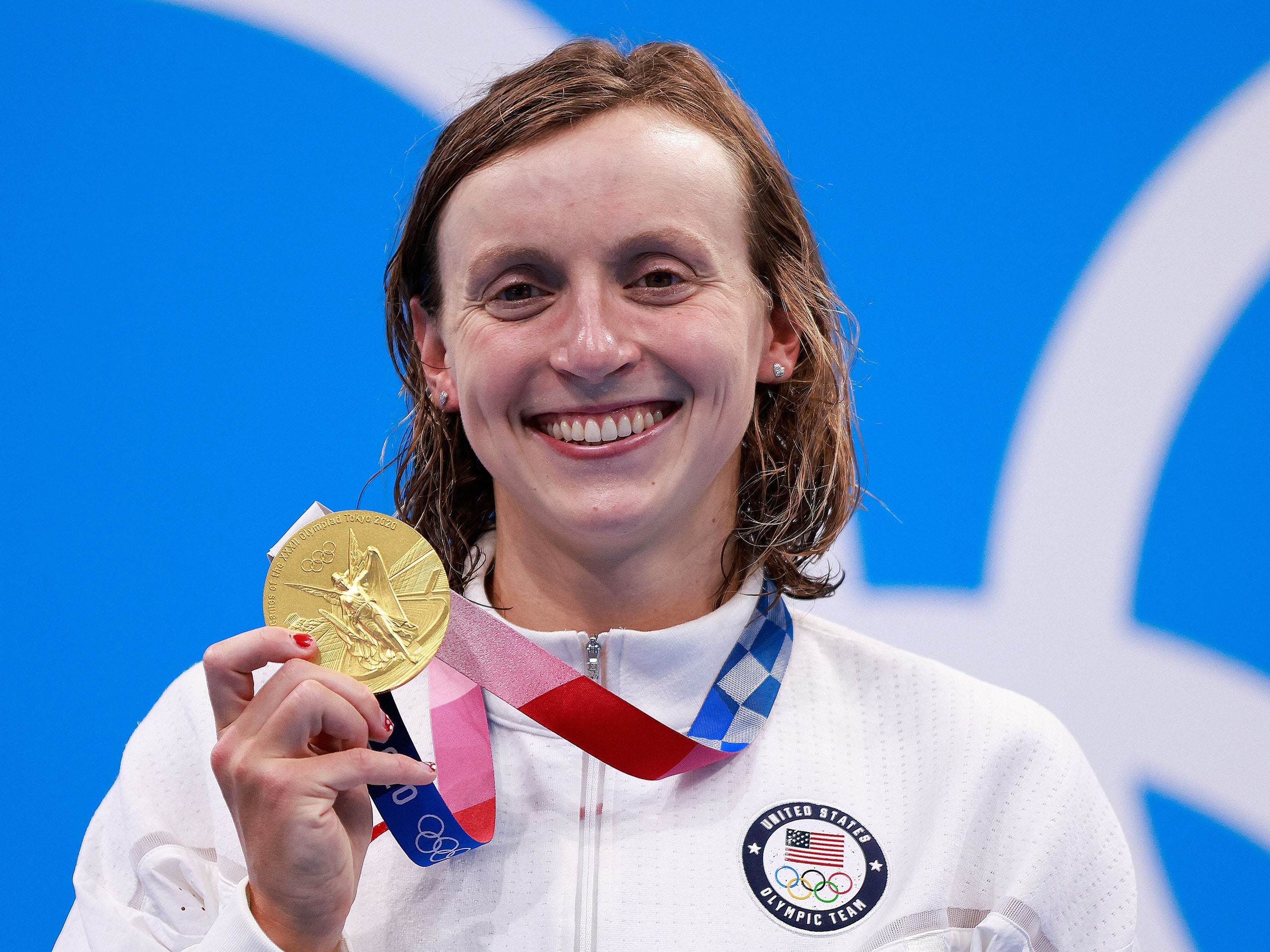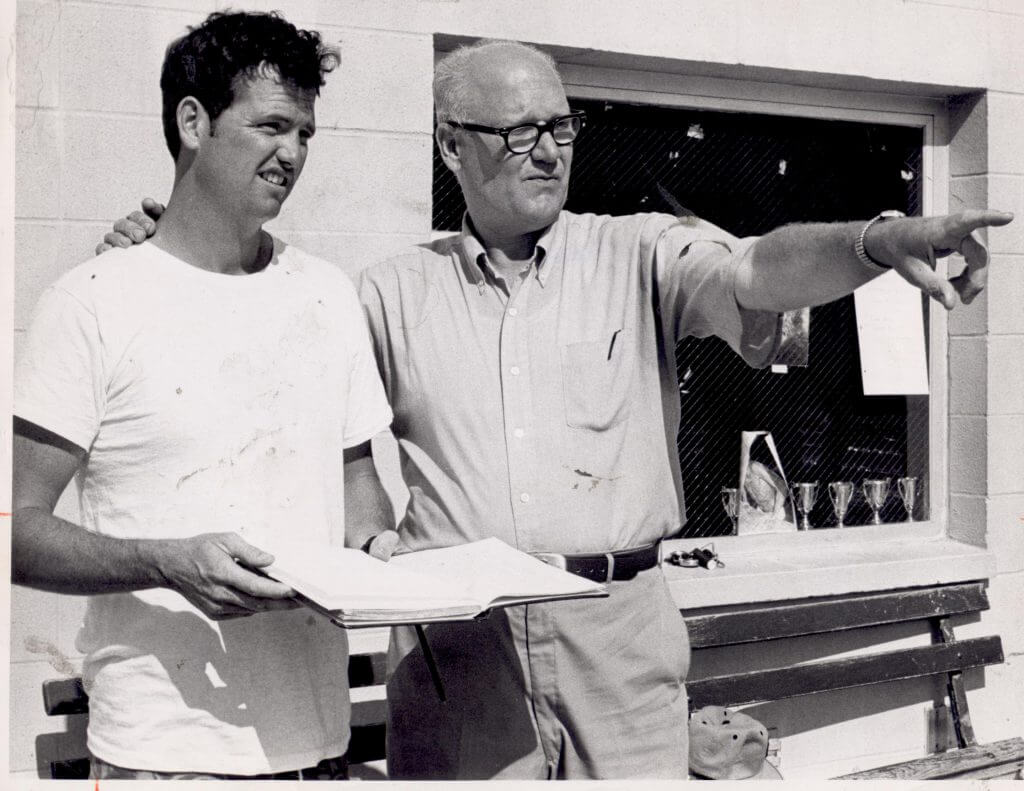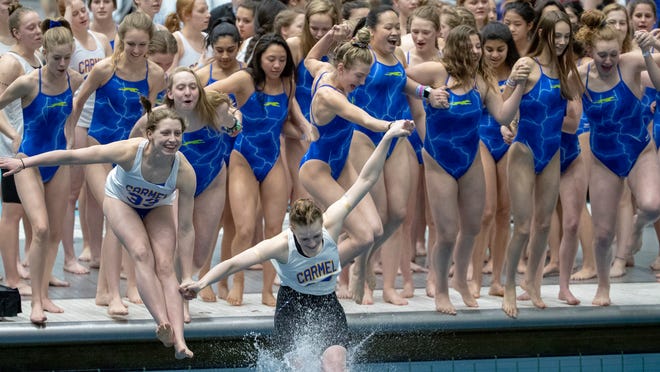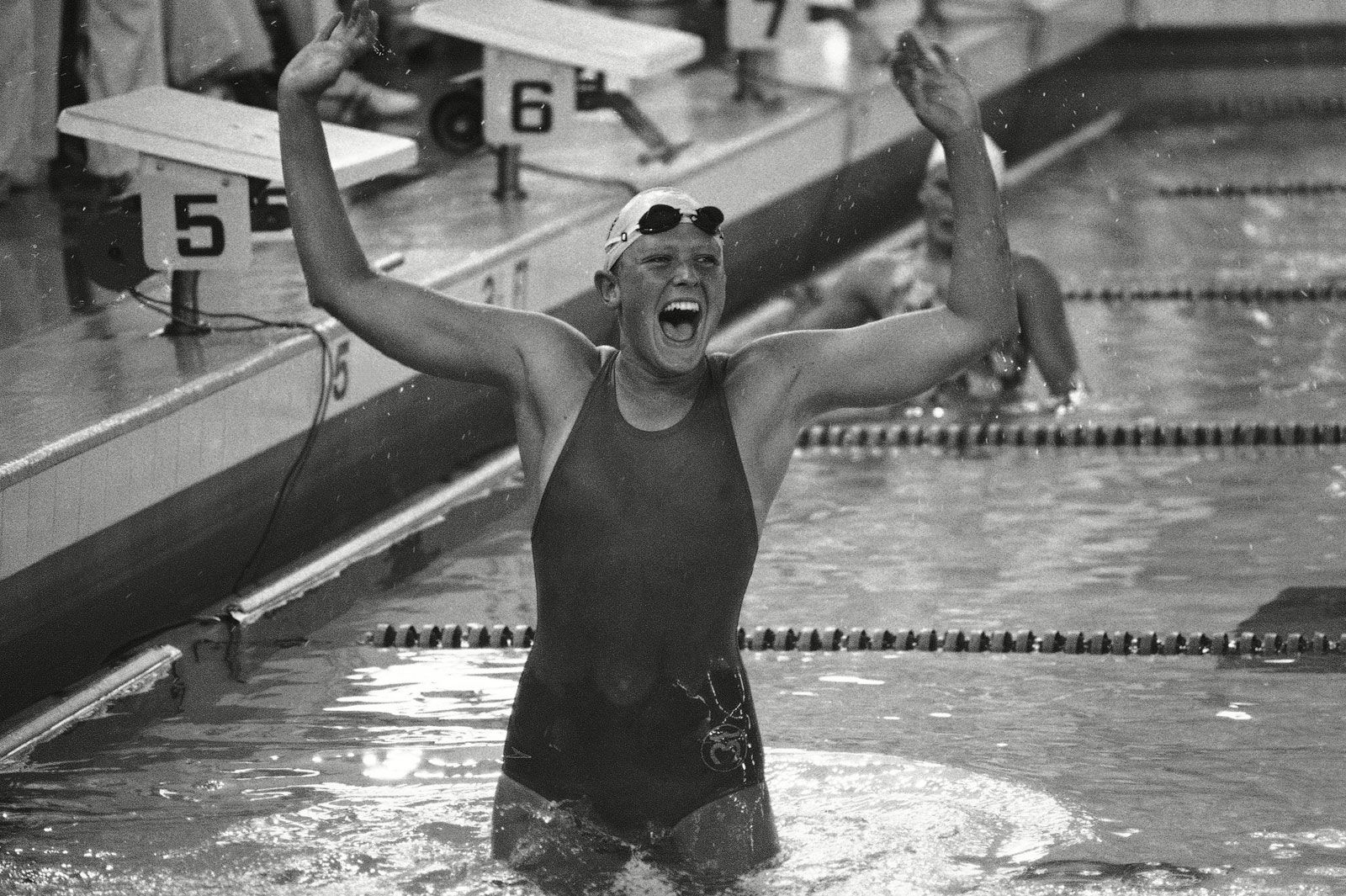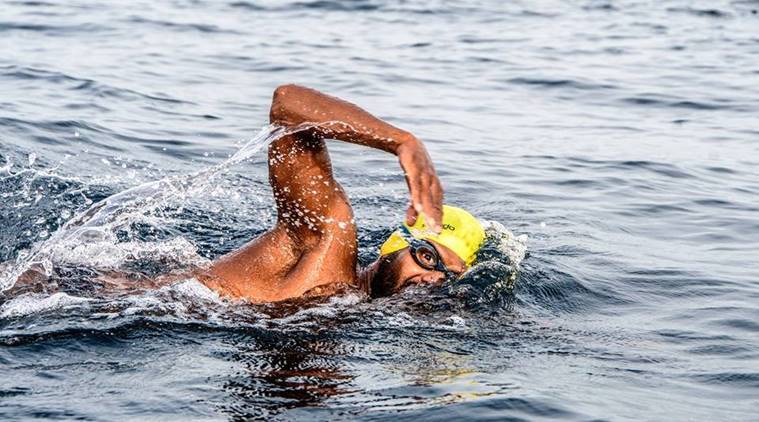Before Katie Ledecky there was Debbie Meyer.

Deborah Elizabeth Meyer was born in Annapolis, Maryland, August 14, 1952. She moved with her family to Sacramento, California, where she joined the Arden Hills Swim Club to train under Sherm Chavoor, whose swimmers produced 83 world records and 31 Olympic medals. A tomboy, Meyer played Little League baseball and ice hockey, but her favorite sport was swimming. Under Chavoor, who revolutionized swim training by having his athletes cover extraordinary distances, Meyer swam seven days a week. She would crank out 5,000 meters in the morning, go to school, then return and go 10,000 more in the afternoon. Meyer trained with Mike Burton–who would go on to win three Olympic gold medals and set a world record in the 1,500 meter freestyle—and the great Mark Spitz [Daily Dose, 9/4/15], who was two years older than Debbie. The competition was fierce at Arden Hills, as seven of Chavoor’s swimmers would make the 1968 Olympic team. Despite suffering with asthma, Meyer possessed speed and stamina never before seen in a swimmer [and not seen again until Katie Ledecky]. She dominated every freestyle event from 200 meters—a long sprint—to the 1,500—a grueling endurance race. At 14, Debbie Meyer broke seven world records, including the 400 and 800 meters at the 1967 Pan Am Games, and was named “World Swimmer of the Year” by Swimming World magazine.

Prior to 1968, the longest Olympic race for women was 400 meters, while men had raced the 1,500 event since the advent of the Modern Games in 1896. The International Olympic Committee added the 200 and 800 meter freestyle events to the women’s Olympic program for 1968. Debbie Meyer had just turned 16 when she went to Los Angeles for the 1968 U.S. Olympic Trials. Over a four-day span, she competed in three events—the 200, 400 and 800 meter freestyle—and set a new world record in each. Two months later, she took a hiatus from her junior year at Rio Americano High School to travel to Mexico City for the 1968 Summer Games.

In the seven years leading up to the Olympics, Meyer swam 30,000 miles, setting training standards that were unthinkable. On the morning of her first preliminary October 19, she awoke with a stomach infection from drinking tainted water. Sick and dehydrated, she lost five pounds but declined medication for fear of being disqualified. Racing in the second heat of the 400 meter preliminaries, she set a new Olympic record. Still sick the following day, she took the gold medal while lowering her Olympic mark by over three seconds. On October 22, little Debbie Meyer led the American women to a sweep in the 200 [Olympic rules at that time allowed three swimmers from the same country to compete in the final. Today only two are permitted]. That same day she competed in the prelims of the 800—the first race at this distance in women’s Olympics history—and set an Olympic record. The mark did not stand for long, as in the following heat Australia’s Karen Moras lowered it by over four seconds. In the final two days later, a fully-recovered Meyer destroyed the field to capture the 800 gold medal, finishing 11 seconds ahead of her nearest competitor while setting a new Olympic record of 9:24.0. Moras finished fourth. Meyer had six swims in Mexico City [one prelim and one final for each of three events]: she set a new Olympic record in each.

Debbie Meyer is the first female swimmer to win three individual gold medals in a single Olympics, a feat matched by Katie Ledecky [Daily Dose, 12/8/15] at the 2016 Rio Games. Swimming in an era before swim caps, googles and racing suits, she broke 15 world records, 27 American records and won 19 AAU titles. Her 400 meter time in Mexico City would have won the gold medal in the men’s event at the 1956 Melbourne Olympics. The world record [17:19.9] she set in the 1,500 meters at the 1969 AAU Championships would have beaten Murray Rose—gold medal winner in the 1,500 in Melbourne—by 39 seconds. Meyer won the 1968 Sullivan Award as the best amateur athlete in America, was the 1969 AP Athlete of the Year and was named “World Swimmer of the Year” three straight times from 1967 to 1969. She is the first woman to swim 1,500 meters in under 18 minutes, first to take the 400 under 4:30, and is the first woman to cover a mile in under 17 minutes. Between 1967 and 1970, Meyer broke 20 world records and all of her times were better than what the best men in the world had swam just a decade earlier. She held five world records [from 200 to 1,500 meters] simultaneously.

Before Title IX, there were no athletic scholarships for women so, after graduating from Rio Americano, the best female swimmer in the world stayed in Sacramento and enrolled at American River Community College. She later paid her way to UCLA. With no endorsements and no way to earn an income from the sport, Miss Meyer retired from competitive swimming at 18 having not reached her full potential. In June 2016, she attended the U.S. Olympic Trials in Omaha to support Katie Ledecky, with whom Meyer has much in common. Both were born in Maryland, both broke their right arm in fourth grade, both liked to race the boys in practice, and both are the greatest female swimmers of their generation. Debbie Meyer [now Weber] is a member of the American High School, International Swimming and U.S Olympic halls of fame. The former teen phenom—who at 5’7” tall has a wingspan of six feet—sports a personalized license plate reads “3G1968.” In 1999, she was voted “Sacramento Athlete of the Century.”

On this date in 1968, 16-year-old Debbie Meyer became the first woman to capture three individual gold medals in a single Olympics by winning the 800 meter freestyle in 9:24.0 to set a new Olympic record.
View here: https://www.youtube.com/watch?v=h6BmAuf8zX4


